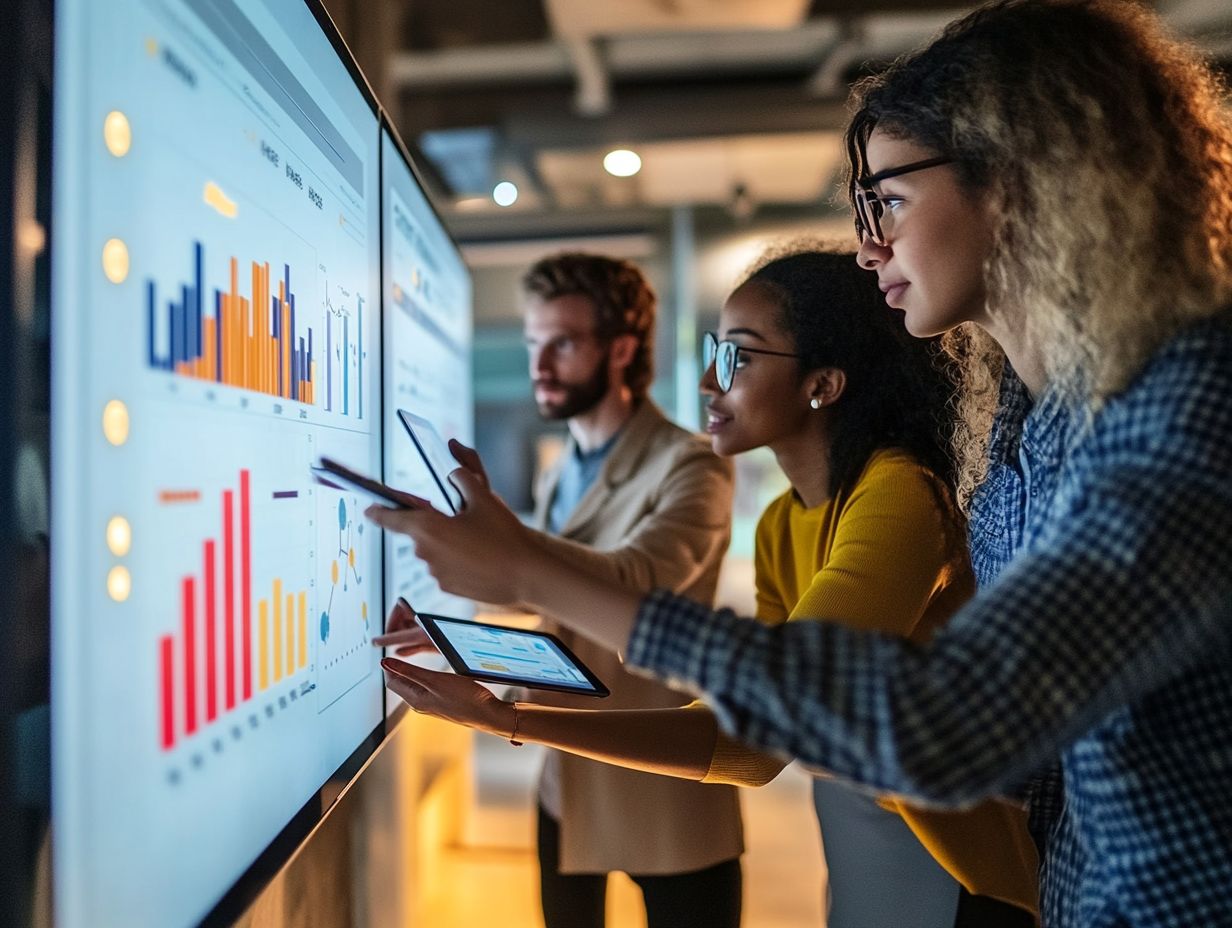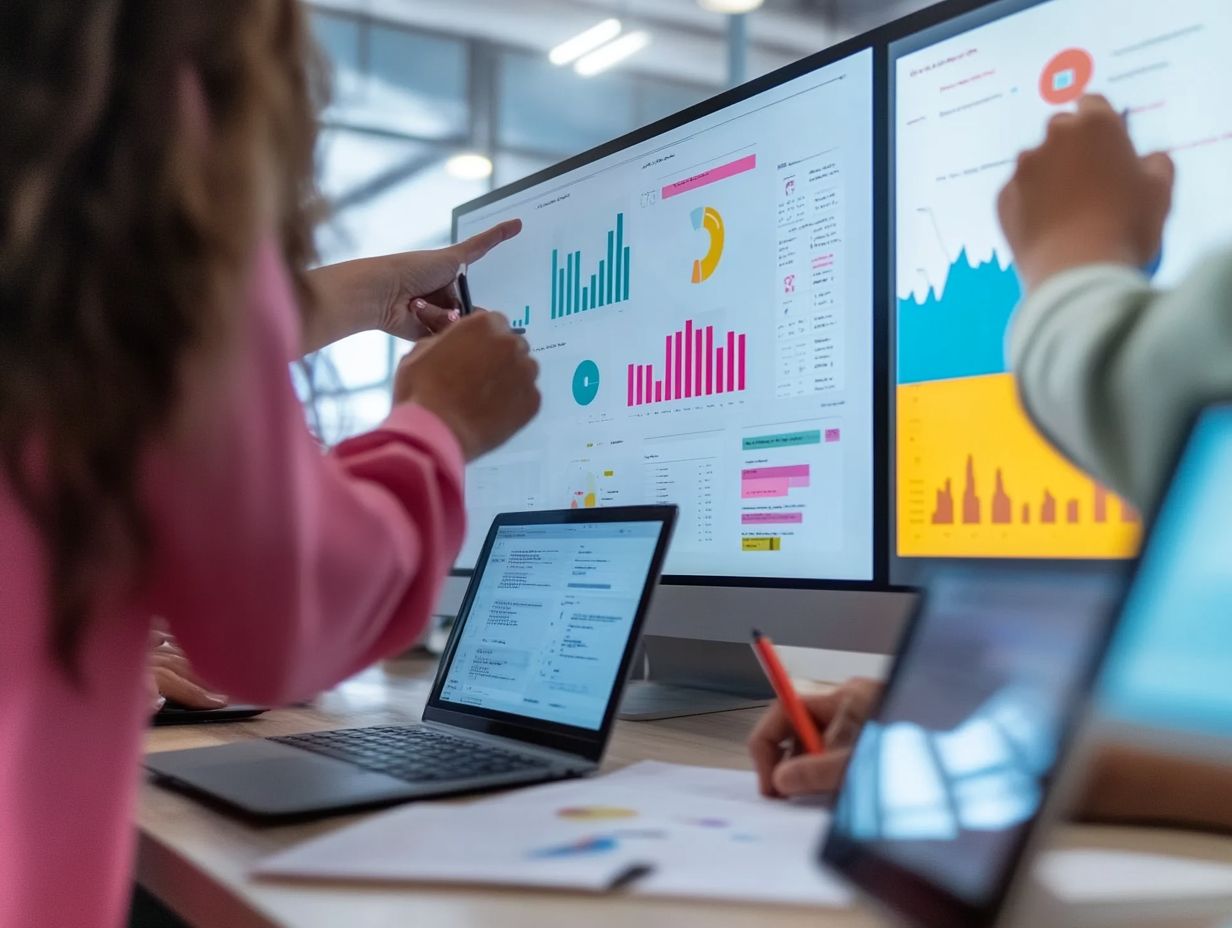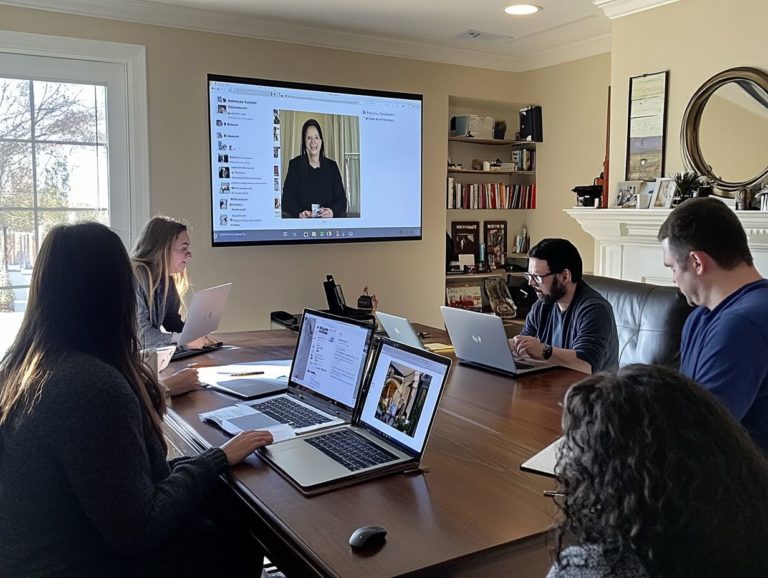The Role of Technology in Modern Career Services
Career services have undergone a remarkable transformation over the years, moving from traditional methods to fully embrace modern technology.
This discussion delves into how these changes have reshaped the landscape for both job seekers and employers. Explore the types of technology currently revolutionizing career services and uncover the benefits of these advancements such as enhanced efficiency and personalized experiences while addressing the challenges they present, including privacy concerns and the persistent digital divide.
Get ready to explore the thrilling possibilities ahead as you discover what the future of career services holds. Navigate this evolving field with us and uncover what it truly means for you.
Contents
- Key Takeaways:
- How Career Services Have Transformed Over Time
- Technology in Career Services
- Benefits of Technology in Career Services
- Challenges of Technology in Career Services
- Future of Career Services
- Frequently Asked Questions
- How has technology impacted modern career services?
- What are some examples of technology used in modern career services?
- How has technology improved the efficiency of career services?
- Can technology replace human interaction in career services?
- How has technology made career services more accessible?
- What are the potential drawbacks of relying on technology for career services?
Key Takeaways:

Technology has revolutionized career services, shifting from traditional methods to modern approaches. It has greatly improved efficiency, accessibility, and personalization. Despite the benefits, challenges such as privacy concerns and the digital divide must be addressed for technology to have a successful impact in career services. Explore these advancements today to enhance your job search!
How Career Services Have Transformed Over Time
The evolution of career services has been profoundly influenced by shifts in the job market, prompting a transition from traditional career guidance methods to contemporary, technology-driven strategies that address the diverse needs of job seekers and their unique career trajectories.
As educational institutions and professional networks adapt, they increasingly embrace innovative approaches to career counseling, using technological advancements to enrich career development strategies and foster lifelong learning.
Traditional vs. Modern Approaches
Traditional career counseling often relied on standardized tests and generic advice. Modern methods now focus on personalized learning and digital communication tools designed to cater to your unique needs as a job seeker.
This shift signifies a deeper recognition that you possess distinct skills, interests, and career aspirations that a one-size-fits-all approach cannot address.
For example, career coaches are using platforms like LinkedIn to help you forge valuable connections and receive tailored guidance, enabling you to network more effectively.
Case studies reveal that personalized learning through online assessments and feedback loops dramatically boosts engagement and outcomes.
Unlike the static nature of traditional services, which often left you feeling uninformed and disconnected, these innovative strategies create an enabling environment that fosters continuous growth and adaptability in today s dynamic job market.
Technology in Career Services
Technology serves as a cornerstone in the evolution of career services. By harnessing online training platforms, AI innovations, and immersive Virtual Reality (VR) and Augmented Reality (AR) technologies, you can significantly enhance both the accessibility and effectiveness of career coaching and skill development.
This integration opens new avenues for learning and elevates your professional growth to new heights.
Types of Technology Used
Career services harness an array of technologies, from online courses to video tutorials and cutting-edge VR and AR, to offer you engaging and effective learning experiences as a job seeker.
These tools help you acquire essential skills while catering to your unique learning preferences. For instance, platforms like Coursera and LinkedIn Learning provide tailored courses in specific fields, allowing you to learn at your own pace and focus on areas where you need improvement.
Video tutorials break down complex subjects into manageable segments, making the learning process more accessible. Emerging technologies like Virtual Reality simulate real-world job environments, giving you the opportunity to practice skills in a safe and controlled setting.
By integrating these technologies, career services create a comprehensive learning ecosystem that boosts both knowledge retention and engagement, effectively preparing you for the competitive job market.
Don t miss out on these tools start your journey now!
Benefits of Technology in Career Services

The integration of technology into career services presents a wealth of advantages for you as a job seeker. It significantly enhances efficiency and accessibility, making your job search smoother.
Moreover, it opens the door to personalized career development strategies that resonate with current market trends. This ensures you stay ahead in a competitive landscape.
Efficiency and Accessibility
The efficiency and accessibility of online training platforms have transformed career services. You can now access resources and guidance tailored to your specific needs remarkably easily.
These platforms use the latest technology to streamline your job search process, giving you instant access to a treasure trove of valuable information.
For instance, services like LinkedIn Learning and Coursera offer personalized courses that allow you to enhance your skills at your own pace. This ultimately boosts your employability.
Virtual career fairs and networking events on platforms like Handshake connect you directly with employers. This breaks down geographical barriers and creates opportunities that were once out of reach.
This integration of technology not only supports superior learning but also fosters inclusivity. It allows diverse talents like yours to discover pathways to success.
Personalization and Customization
Personalization and customization in career coaching have reached new heights thanks to data analytics. This means analyzing information to identify patterns that can help you find job opportunities that match your skills.
This transformation fundamentally elevates your experience by ensuring you receive tailored guidance and resources that reflect your specific skills, interests, and goals.
By harnessing data analytics, career service providers can scrutinize trends in the job market to match them with your qualifications.
For example, if you have strong analytical skills but lack experience in a particular sector, you might receive recommendations for relevant online courses or mentorship opportunities. This significantly enhances your employability in that field.
Such targeted coaching enables you to navigate your unique trajectory with confidence. It also assists employers in finding ideal candidates suited to meet the ever-evolving demands of their industries.
Challenges of Technology in Career Services
While technology offers immense advantages, it also presents challenges, including privacy and security concerns. It’s essential to be aware of these issues as you pursue opportunities.
Privacy and Security Concerns
Privacy and security concerns present considerable challenges in career services. As a job seeker, you increasingly share personal information across various platforms.
This trend raises critical questions about how effectively these platforms safeguard your sensitive data. If you encounter unencrypted websites, it could lead to unauthorized access to your personal information.
Many individuals unwittingly fall victim to identity theft or data breaches. This underscores the necessity for robust security measures.
To mitigate these risks, consider adopting best practices like:
- Use strong passwords
- Educate yourself on password management
- Utilize privacy settings effectively
Choosing reputable platforms that are transparent about their security protocols can significantly contribute to a safer online environment for you as a job seeker.
Stay informed and safeguard your career journey today!
Digital Divide

The digital divide poses a considerable obstacle to accessing career services, limiting opportunities for job seekers who may lack the necessary technology or reliable internet access. This disparity hinders your ability to research job openings.
It also restricts your participation in online training or virtual networking opportunities. For example, if you find yourself in a rural area with limited bandwidth, attending webinars or using online assessment tools can become a significant challenge.
This further isolates you from potential employers. Employers are turning to digital platforms to streamline their hiring processes, making tech-savviness essential.
To bridge this gap, community organizations can play a key role by offering free internet and skills training, enabling you to navigate the modern job landscape with greater confidence and effectiveness.
Future of Career Services
The future of career services is set for a remarkable transformation as technological advancements reshape the landscape. These changes will profoundly influence both job seekers and employers.
They will adeptly respond to ever-evolving market trends.
Predicted Technological Advancements
Predicted technological advancements, such as AI, VR technologies, and enhanced online training platforms, are poised to revolutionize career services. These innovations will offer solutions for both job seekers and employers.
By harnessing AI-driven algorithms, career services can deliver personalized job recommendations and tailored skill development pathways that closely align with current market demand. Imagine using virtual reality to preview jobs.
You ll understand the work environment before applying this not only boosts your preparedness but also ensures you re the right fit for the role.
Online training platforms, enriched with data analytics, can meticulously track your progress and skill acquisition. This enables real-time adjustments to your learning paths.
These advancements will streamline recruitment processes while fostering a more engaged and equipped workforce, ready to tackle the challenges of a rapidly evolving job market.
Impact on Job Seekers and Employers
The impact of emerging technologies on job seekers and employers will be substantial. Career services will evolve to address shifting market trends and the dynamic needs of both groups.
As automation and artificial intelligence reshape traditional roles, you will compete not just with fellow job seekers but also with advanced algorithms that can execute tasks with remarkable efficiency. This transformation will drive you to acquire new skills.
Boosting your digital literacy and emotional intelligence will help you stand out in an increasingly tech-centric landscape. From the employer’s perspective, integrating data analytics and machine learning will refine recruitment processes.
This will enable a more precise alignment of candidates with available positions. As a result, expectations around responsiveness and service delivery will heighten.
Organizations will be encouraged to invest in cutting-edge technologies that elevate the recruitment experience.
Frequently Asked Questions
Here are some common questions about how technology is shaping career services.
How has technology impacted modern career services?

Technology has significantly transformed the way career services are delivered. It has made it easier and more convenient for job seekers and employers to connect, search for job opportunities, and access career guidance and resources.
What are some examples of technology used in modern career services?
Examples of technology used in modern career services include job search websites, social media platforms, video conferencing for virtual career fairs and interviews, and career assessment tools.
How has technology improved the efficiency of career services?
Technology has improved the efficiency of career services by automating processes such as resume parsing, job matching, and scheduling appointments. This allows career counselors to spend more time providing personalized support to clients.
Can technology replace human interaction in career services?
Technology has improved many aspects of career services. However, it cannot replace the value of human interaction.
Career counselors offer personalized guidance and support that technology simply cannot replicate.
How has technology made career services more accessible?
Technology has made career services more accessible by addressing distance issues. Virtual career fairs, webinars, and online resources allow job seekers to connect from anywhere in the world.
This makes it easier to find job opportunities and receive essential career guidance.
What are the potential drawbacks of relying on technology for career services?
Technology offers many benefits in career services, but it also has drawbacks. Technical difficulties and privacy concerns can hinder progress.
Job seekers might depend too much on technology instead of reaching out for personalized support from career counselors.






